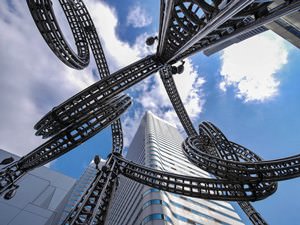 1. English is enough to travel in Kanagawa, but this applies only to tourist areas. Local people, as a rule, can speak only their mother tongue. There are many signs in Japanese only.
1. English is enough to travel in Kanagawa, but this applies only to tourist areas. Local people, as a rule, can speak only their mother tongue. There are many signs in Japanese only.
2. Do not eat on the go – the Japanese will consider it a sign of bad manners and will express their disapproval. It is possible to eat in public transport, but only if you do not produce any litter and do not discomfort others.
3. Loud phone calls in public areas can be considered a sign of impoliteness to others. It is better to turn on the silent mode in your gadget and answer important phone calls in a low voice without any active body language.
4. Tips in Kanagawa restaurants, just like everywhere in the country, are unacceptable – they will be considered an insult. That being said, if you want to thank the staff, it is better to thank them in person or write a good review of the service.
6. It is common to take off shoes before entering certain places. These are, for example, apartments, monasteries, and some restaurants in the national style.
7. Japanese laws prohibit taking pictures of local people, products in shops, and showpieces at exhibits without permission. If you want to take pictures of something, don’t forget to ask the staff whether you are allowed to do this.
Kanagawa prefecture is located on Honshu Island. Today this is one of the main industrial centers of the country. Despite the fact that Kanagawa was severely destroyed by the earthquake in …  Open
Open
9. Smoking is prohibited in the vast majority of public areas in Japan. If you need to smoke, it is better to ask people about the closest smoking area. Otherwise, you will have to pay a large fine.
10. When entering a restaurant, it is necessary to wait for an administrator who will take you to a vacant place. Do not occupy the table that you like yourself. Some dining establishments have ticket machines. In this case, you need to take a ticket and wait in the queue.
11. Crime rates are very low in Japan mostly thanks to the national character and a severe punishment system. If you have lost something or suspect that your item was stolen, it is better to contact the police. Most probably, your lost item will be found.
12. Kanagawa has a mild climate that is quite warm but humid. Tourists need to be prepared for frequent rains and constant high humidity.
13. Public transport is well-developed in Japan. Numerous highways and railroads connect cities and towns. Don’t forget to keep the ticket until the end of a ride – there are ticket barriers at the exit.
14. Japanese taxi is a very comfortable way to navigate in the city. However, keep in mind that many taxi drivers cannot speak English. It is better to write down the address in Japanese beforehand in order not to find yourself in an unknown place.
15. Be careful if you want to rent a car as this is not the most comfortable means of transport in Japan because the main streets and highways are often heavily loaded. Besides that, left driving is adopted in the country. To be allowed to drive a car, you need a Japanese driving license or a special international one.
16. It is better to learn how to eat with chopsticks before visiting the Country of the Rising Sun – the majority of the national cuisine restaurants do not have forks and knives. 




